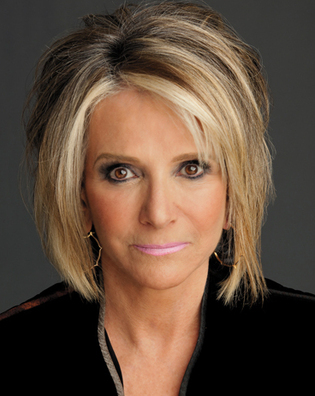 loading
loading
Where They Are NowAn unflinching eye behind the camera"Nothing that's real or true or human disgusts me," says the president of HBO Documentary Films.  Timothy Greenfield-SandersSheila Nevins ’63MFA oversees documentary films for HBO. View full image
Sheila Nevins ’63MFA was first hired by HBO in 1979 and has been president of HBO Documentary Films since 2004. Documentaries she has produced have won dozens of Emmy, Peabody, and Academy awards. Y: You went to the Yale drama school. How did you move from theater to documentaries? N: When I was at Yale I majored in directing, and I had never really watched television. I was a TV snob. Then I somehow caught a program about people all over the world doing something at the very same time. And I thought that real people were just as interesting as fictional people. And since in the ’60s the world of theater directing was pretty closed to women, I decided that maybe there was something in the docu world that would make sense. Later I got a job as an associate producer on The Great American Dream Machine [a PBS show from the early ’70s]. I did the man-on-the-street interviews, and from then on I got engaged in real people’s stories as opposed to fictional stories. Y: How many documentaries has HBO produced? N: We’ve made certainly a thousand docus. But a thousand over 30 years is not so many. Y: How has your taste changed over the years? N: Not really at all. The medium and technology have changed. But the taste for something that’s true, and that moves people, and that creates empathy, and that is everlasting—that doesn’t change. Maybe the characters change, or the way they’re dressed, or the cars they drive, or the method they use for suicide. But it’s the same story, same heart, same people. Y: What’s the state of the American documentary? N: Financially, it’s always in trouble. There are always surprises. Films about caves make money, and films about chimps don’t. But in terms of public consciousness, I think it’s grown in respect. When I used to say, “I work in documentaries,” people would stifle a yawn. Now, they perk up a little. Reality programming has probably helped a little. You can make a docu that people who don’t have PhDs and didn’t go to Yale and who work in a coal mine can like. Well, I guess you could work in a coal mine and go to Yale, right? But not too many people. Y: I haven’t met one yet. N: If the economic climate continues, you may. Y: You brought up reality TV. Is it a blessing or curse to documentaries? N: I think it’s so distorted, and sometimes rightfully so, because it’s fun to watch. I’m not sure it’s the truth you get out of a docu. Though some shows, like Hoarders and Intervention, those touch on true. It is popular, and I’m all for popular. Y: Do you go out into the field often? N: Do I fly in helicopters and get wide shots? No. Do I do interviews? Yes. I just interviewed Gloria Steinem. I don’t like to do anything that I think someone else can do better than I can. I wouldn’t go to Pakistan to make a film about people having acid thrown in their faces. I would be afraid to do that. I wouldn’t go to a prison in Afghanistan. But I’m smart enough to know the people who will. I don’t know that I’m particularly brave. I’m very curious, but I’m not necessarily willing to face danger. Although I’m happy to watch it. Isn’t that selfish? [Laughs] Well, don’t generals send other people out to war? Y: What are you really excited about right now? N: When I work on a film, I love it and care about it, and I think it’s the most important thing in the world at that moment. As soon as it’s on, I lose interest. I can talk about what’s coming up with enthusiasm. We have a film called The Loving Story, about the first black-white marriage in Virginia. We did a film [recently] about some nuns in Bethlehem, Connecticut. One of them was an actress in the ’50s, and she just decided to go into this cloistered life. It’s called God Is the Greater Elvis. She had to choose between Elvis and God, and she chose God. Y: Now we’ve come to the psychoanalytical portion of the interview. N: Should I lie down? Y: Tell me about your mother. N: My mother had amputations, and she was often shocking people in public by the way she looked. She had a stump, and it was about 100 degrees in New York, and we were sitting at a counter in a Chock full o’Nuts near Barnard, and she let her stump hang loose near the countertop. Some woman sat down and said, “That’s disgusting!” and moved away. My mother could’ve pulled her sleeve down to make a knot, but it was very uncomfortable to move your arm like that. So I remember my mother rolled up her sleeve with her other hand. Y: What did that teach you? N: We can’t all be perfect. Nothing that’s real or true or human disgusts me. I have to watch that a little bit because my taste-o-meter is just different from a lot of other people’s. I think if it really happened, then you should show it. If it’s a war wound, or an accident on a road, or whatever. I don’t think you need to euphemize the vulgarity of living. You know how they pull the curtain in the hospital and everyone has to step out of the room? I would say that I don’t step out of the room. I want to know what’s going on behind the curtain.
The comment period has expired.
|
|